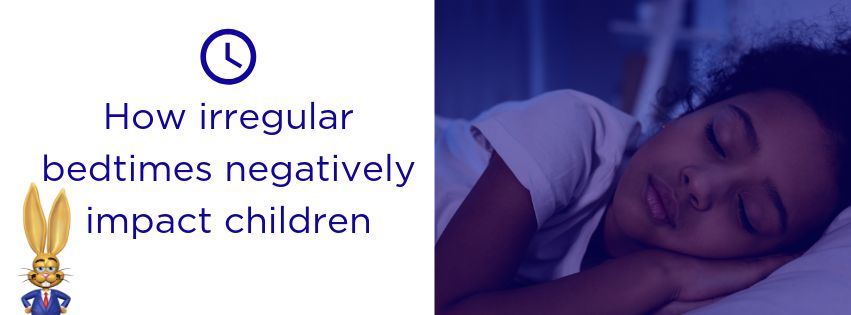Exercise Provided by Children’s Activities Can Improve Sleep Habits
It’s not news to anyone that exercise is good for children and adults alike. One of the greatest impacts that exercise can have is improving the ability to get to sleep and to get good sleep.
What may be news to you is the beneficial impact good and consistent sleep has on children’s development, behavior and health.
Of course, the converse is true: Irregular sleep patterns – often caused by inconsistent bedtimes – are detrimental to the development, behavior and health of our children.
When you come across students who show developmental, behavioral or health-related struggles that could stem from poor and inconsistent sleep habits, this post may help you understand their struggle a little better.
Inconsistency in bedtime isn’t good for children.
The TODAY show confirmed what we all already know: Irregular bedtimes for children lead to worse behavior, slower development and health issues.
Notice that this doesn’t just state reasonable bedtimes but stresses the importance of consistency.
Consistent routines – including regular bedtimes are important for children as well as adults. Going to bed at 8 pm one night and 10 pm the next makes more of a difference than you think. In fact, even just one hour can be a significant difference.
Irregular bedtimes raises the risk for heart disease (because getting different amounts of sleep from night to night is linked to having metabolic syndrome). This information was found by a new study published in Diabetes Care. This is a cautionary statement for those going to bed at 10 pm one night and 2 am another. Or those who get seven hours of sleep one night and ten the next.
Every one-hour increase in the variability of how long a person sleeps from night to night was associated with 27 percent higher odds of metabolic syndrome.
According to the study published in Diabetes Care
Is there proof that a child’s bedtime impacts their development and behavior?
A British study of seven-year-olds who had an inconsistent bedtime confirmed that children’s behavior and development can be negatively affected by an inappropriate bedtime.
By the age of seven, more than half the children in the study went to bed regularly between 7:30 and 8:30 pm. The rest of the children in the study had irregular bedtimes. By comparing the two result sets, the difference in the children’s behavior became obvious.
Scientists observed data on more than 11,000 children whose parents were questioned about family routines when the children were aged three, five and seven. At seven, the children were given reading, math and spatial awareness tests to determine whether their bedtime had any impact on their scores – and whether the effects built up or disappeared over time.
The results showed that children who did not have a regular bedtime at the age of three went on to score lower in all three tests, suggesting it could be a critical period in their development.
Irregular bedtime affects the developing brain
A study, published in the journal Pediatrics, found that irregular bedtimes could disrupt natural body rhythms (circadian rhythms or body clock) and cause sleep deprivation, undermining brain maturation and the ability to regulate certain behaviors.
Sleep is the investment needed to allow learning fresh the next day.
According to the Journal of Epidemiology and Community Health
The study showed that the group of children with irregular bedtimes were more hyperactive than their well-rested peers.
The children were also found to have behavior and conduct issues along with emotional and social problems.
The good news – confirmed by lifescience.com – is that, although the child’s behavior grew worse the more years spent without a firm bedtime, the behavior noticeably improved when the child switched to a scheduled bedtime.
How significant can the behavior variance be?
Especially seen in young children, those who don’t have a regular bedtime are prone to behavior that can include crying and tantrums more than those who go to sleep at the same time each night.
In 2013, Medical New Today published an article that noted the agreement between parents, teachers and doctors that the lack of sleep makes children cranky, tearful and more prone to tantrums.
“Children with non-regular bedtimes had more behavioral difficulties. There was an incremental worsening in behavioral scores as exposure through early childhood to not having regular bedtimes increase.”
According to the Academy of Pediatrics
Irregular bedtimes have similar effects of jet lag for children.
TIME magazine reports that irregular bedtimes have similar effects as jet lag for children. When sleep-wake patterns are disrupted, the result can be sleep deprivation. The effects of poor sleep built up incrementally as the children aged.
Early childhood development has profound influence on lifetime health and well-being. Disruptions to sleep – especially when they occur at key times in development – could have important lifelong health impact.
According to Yvonne Kelly, one of the study’s co-authors and a professor in the Department of Epidemiology & Public Health at University College London in a statement
Irregular bedtimes have impacts on weight and self-esteem.
Children with irregular bedtimes were more likely to be overweight, exhibit lower self-esteem than others with a consistent bedtime.
A slightly irregular bedtime can impact weight, even if the inconsistencies in bedtimes are limited to weekends. These children are still 20 percent more likely to be obese or overweight than those with a consistent bedtime.
Involve your children in determining a consistent bedtime.
Enforcing regular bedtimes during early childhood is an important influence on children’s behavior. Making this change as soon as possible can potentially make the impact reversible.
Those who picked up regular bedtimes showed improvements in behavioral scorings.
It’s important to include your children in the bedtime decision. They should understand why it’s important and you should understand why they want to choose a particular time for their nightly bedtime.
Ultimately, it’s critical that a consistent bedtime is enforced so that your children have the best chance for being intelligent, healthy and happy people.
Exercise helps consistent sleep happen.
Exercise is not only great for the body and mind. It can also inspire good sleep. There is solid evidence that exercise does, in fact, help you fall asleep more quickly and improves sleep quality.
Researchers don’t completely understand how physical activity improves sleep. They have not identified a mechanism that explains it but they do know that moderate exercise increases the amount of deep sleep and rejuvenation you get.
“Exercise can also help to stabilize your mood and decompress your mind – which is a cognitive process important to the natural transition to sleep.”
Charlene Gamaldo, M.D. , medical director of Johns Hopkins Center for Sleep at Howard County General Hospital
Do children’s activities – dance, gymnastics, and swim classes – improve sleep?
We don’t have statistics, but we have comments from parents.
You can put money on the probability that your young child will take a nap after dance, gymnastics or swim class. In fact, they’ll probably be asleep in the car before you make it home, so it is advised that you don’t schedule an activity for them or even expect them to be alert directly after they’ve exerted themselves in class. Their recent exercise is responsible for putting them to sleep.
There is nothing to ensure activities will make your child develop more quickly, live a healthier life or maintain a healthy weight, but studies by multiple sources sure do make it look predictable.
Sources:
https://www.yourmodernfamily.com/irregular-bedtimes/
https://www.hopkinsmedicine.org/health/wellness-and-prevention/exercising-for-better-sleep














